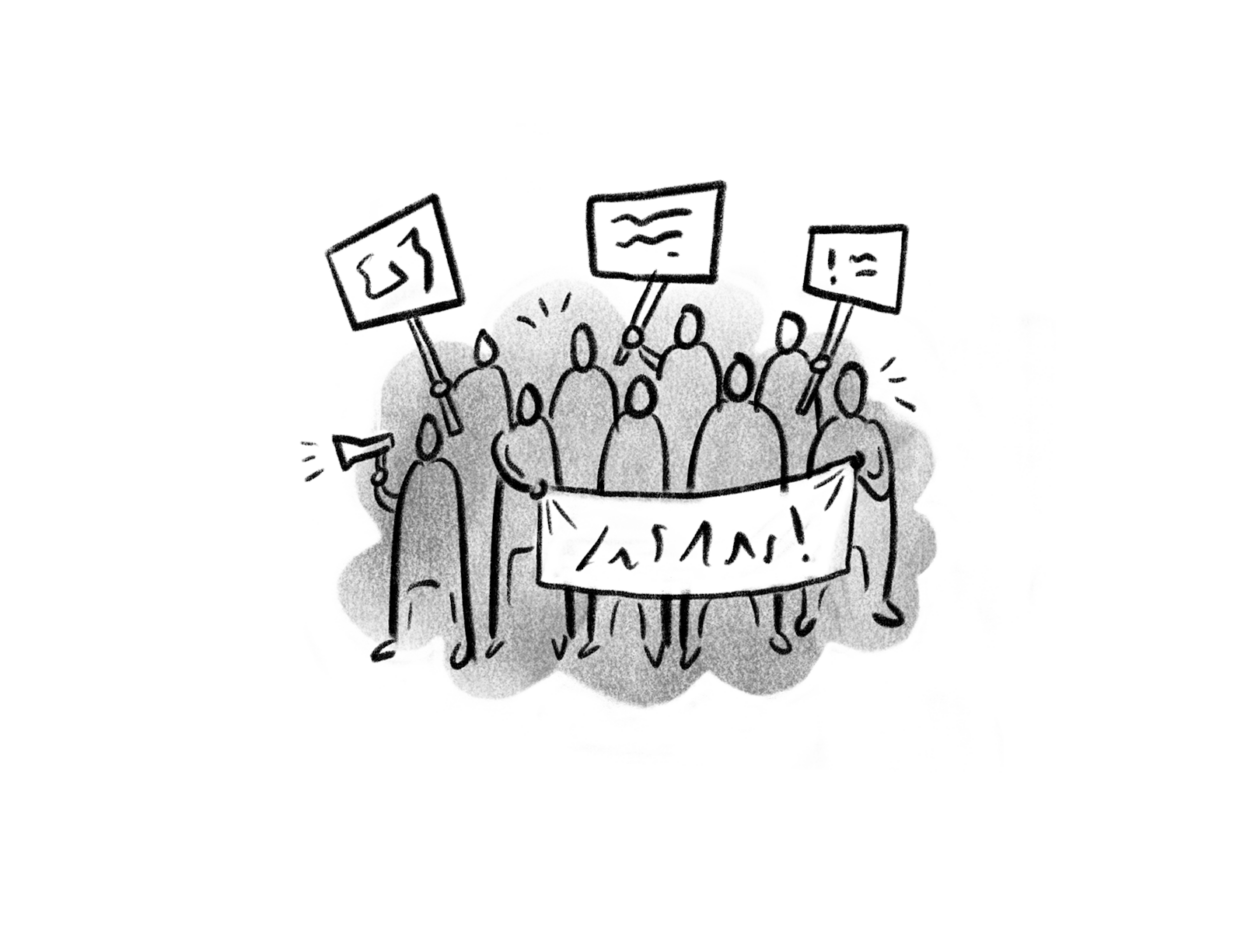
Image by Ivy Sanders Schneider

Image by Ivy Sanders Schneider
When the Alphabet Workers Union announced its union drive in early 2021, I joined pretty much immediately. I went to the union website and filled out a sign-up form, and I got connected with committees and a steward. At the time, I was working for Google as a vendor, which entailed writing, editing, and publishing support content. For my entire career, I’ve only worked jobs where I was a temp, a contractor, or a vendor; Google has an enormous reliance on these workers. We’re often called “the invisible workforce,” and we’re consistently compensated a fraction of what people doing similar jobs full time at Google make.
In the fall of 2020, when my coworkers and I first realized we were making vastly different salaries, we decided to approach our boss all together and won improvements for our specific team. With union support, a much larger pay-parity campaign was able to achieve a dramatic increase in pay and benefits for many more workers in 2021.
Regardless of where you work within the company — whether you’re hauling equipment in a data center or coding in an office with all the perks — the things that benefit some of us benefit all of us. This is especially important in a workforce with such big wage disparities: some people have been making as little as ten dollars per hour at Google while others make well into six figures.
Like many across the industry, I was laid off in December, but I am going to keep doing organizing work while looking for a new job. Our union’s priorities include disability-justice efforts, working against forces of marginalization at the company, and advocacy that aims to further the cause of all workers on a legislative level. Labor organizing can also play a role in developing the ethics around A.I. and other burgeoning technology; our union can hold Google accountable for its collaboration with the U.S. military as well. Alphabet workers in the past successfully pressured the company into abandoning efforts like the Pentagon’s Project Maven, which developed A.I. technology that could have been used in drone strikes. A workforce that is driven entirely by a profit motive and wields potentially dangerous tools is one that may make mistakes we as a society cannot undo. Tech unions are a safeguard against those mistakes.
David Ethan Jones-Krause is an organizer with the Alphabet Workers Union.
Lora Kelley is a writer and reporter in Brooklyn.